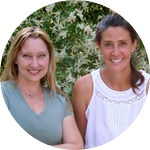About This Project
In our bodies, as in other ecological systems, a rich variety of microorganisms can help ward off disease. Our gut harbors millions of beneficial bacteria, and lack of gut flora diversity has been linked to autism, obesity and inflammation. Does a part of this important bacterial diversity come from the food we eat? This pilot study will compare organic and conventional produce to compare the varieties and numbers of bacteria found on each.Ask the Scientists
Join The DiscussionWhat is the context of this research?
New and exciting research shows that our health depends on certain populations of gut bacteria that originate from our environment. Interestingly, there is little overlap between medical and soil science. We believe there is a considerable association between human health and how food is produced. Diversity of soil microbes keeps plants healthy because a biologically diverse soil can better deal with environmental stress. In the same way, the gut needs a diversity of microbes for our own optimum health. Microbes can be acquired through what we eat, but the question remains: do agricultural practices influence the presence and diversity of microbes on our food? The answer may lead to a greater awareness of the way we grow our food and the consequences to our health.
What is the significance of this project?
In light of recent studies showing the links between lack of gut bacteria variety and diseases such as autism and obesity, it is more important than ever to explore the source of microbial diversity in our diet. The study of own friendly bacteria (our microbiome) is the new research frontier in health and disease.
A greater diversity of gut flora increases resistance to disease, but where does this important variety of gut bacteria come from? Are we missing out on crucial microbes because of the way our fruits and vegetables are grown?
The way we farm and grow food (think pesticides and monocultures!) can affect the balance of microbes in the soil and therefore on the food we eat. Produce with less biological diversity may decrease our gut flora variety, which may affect our health.
What are the goals of the project?
1) Choose fruits and vegetables that are typically eaten raw.
2) Find out what types of bacteria are present on organic produce (from a small-scale farm, think farmer's market).
3) Find out what types of bacteria are present on conventional produce from a large scale industrial farm (just like what you might find in a grocery store)
4) Compare the two. The goal is to determine whether there is a difference in the variety of bacteria (not necessarily the amount), between organic and conventional produce.
5) If the pilot study shows that organic produce has greater microbial diversity (remember, the greater the variety of gut bacteria, the healthier the person), we will start a broader study that will include more fruits and vegetables, and take into account other interesting variables.
Budget
As independent researchers without industry or academic backing, we are looking to fund the processing of produce samples for microbial profiling (finding out who is on your veggies!) using a technique called 16s analysis.
16s analysis is a sophisticated process that allows scientists to find out which bacteria are present in a sample without having to culture them first (many bacteria cannot be cultured at all and would be missed completely!). Instead, they look directly at a small piece of genetic material that is shared by all bacteria, yet it's a little different in each, a little bit like a finger print.
As 16s analysis requires extensive equipment in a laboratory setting, we need to outsource this process.
Meet the Team
Team Bio
Dr. Daniela Connelly (on right in photo) is a family and integrative physician whose focus is on disease prevention through optimal nutrition. She works with underserved populations in Lawrence, Massachusetts. She also runs an organic farm and CSA with her husband and children, working to provide healthy food for her family and the community.Laura Wolfer (left) is a molecular biologist and anthropologist. She is an avid gardener, mother of three, and also runs a small organic farm. Her passions include drawing and making pottery.
Additional Information




Project Backers
- 35Backers
- 17%Funded
- $1,680Total Donations
- $48.00Average Donation

